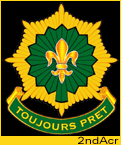Mike Scholl
Posts: 9349
Joined: 1/1/2003
From: Kansas City, MO
Status: offline

|
quote:
ORIGINAL: el cid again
quote:
Japanese Fire Control certainly doesn't seem to have impressed the US Seacoast Artillery Research Board that analyzed it after the War.
"Obsolescent" is the most prevelant word in their study of the subject. They are much kinder than the board studying Japanese military electronics, who described it as being composed of the kind of materials that anyone could have bought in a radio shop in the States in the 30's.
This reminds me of a long standing argument between me and an academic named John W Dower. He writes - in proper documented scholarly fashion - that Japan deliberately destroyed almost all its records. Then he goes on to argue there was no important technology at all of the sort we debate (which is atomic technology) - because we cannot cite the documents he says were destroyed. [When some of them turn up, he says "it is a deception" because he knows, in advance, it cannot be true! But I submit that a classified document in wartime intended for a tiny, official audience was not written to decieve us decades later.] These boards had very little to study - and what they did have was the stuff regarded as not particularly important to destroy. I do think their views of what they saw are valuable. But to assume this is anything like a complete picture is pretty unwise. Over time a good deal of material - written and testimonial and physical - has come to light - and these conclusions do not stand up well against the test of time. There was nothing at all wrong with Japan's air warning system - air raid sirens routinely gave two hours notice - according to many sources - including American POWs. Japan's effective state of air defense was affected by that most basic of military sciences: logistics. A lack of fuel for fighters or a lack of ammunition for guns does not mean that the fighters or the guns were not effective. We have specific examples that show the opposite. Had Japan not been so constrained in fuel and munitions, and had it not decided NOT TO USE BOTH in order to have stocks for an anticipated major battle, we would have suffered worse casualties. You are confusing operational factors with capability. Not the same thing.
I would say offhand that your Mr. Dower sounds like a bit of a putz. Won't be the first or last you meet in the academic world either. The board I refered to had free access to EVERYTHING concerning Japanese Coast Artillery. The war was over, the Japanese had lost, and they were being quite cooperative. While they might have destroyed evidence concerning Germ Research in Manchuria and the like, they had nothing to hide regarding Coast Artillery or AAA or Radar and other regular weapons. With the whole country living from hand to mouth on whatever the US brought in after the war, failure to cooperate might bring starvation. Why risk that to hide the range-finding gear on your unused CD guns?
And I can't buy your arguments about the Tokyo AAA. With the whole city and 100,000+ of their countrymen going up in flames around them, what would they be saving the ammunition for? To defend the rubble? Sometimes you just have to look at things from the viewpoint of common sense. Japanese AAA wasn't very goodl Their Fighters were OK when they had trained pilots and fuel, but their AAA just didn't cut the mustard. They didn't have nearly enough of the one "good to excellent" AAA gun they designed (the 100mm/65) and their fire control lagged behind as well. They HAD to resort to Kamikazes just to have a chance to get through US CAP and Flak. We had trouble with their CAP once in a while, but never with their AAA.
_____________________________
|
 Printable Version
Printable Version













 New Messages
New Messages No New Messages
No New Messages Hot Topic w/ New Messages
Hot Topic w/ New Messages Hot Topic w/o New Messages
Hot Topic w/o New Messages Locked w/ New Messages
Locked w/ New Messages Locked w/o New Messages
Locked w/o New Messages Post New Thread
Post New Thread